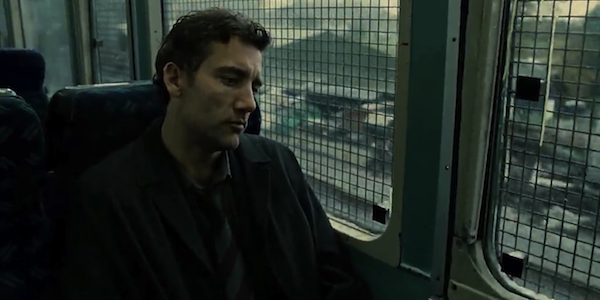3. Does Your First Scene Emphasise The Overall Tone, Genre & Mood Of Your Script?

The first scene in any movie is where an audience's expectations are set up for whatever it is that's to follow. It's the point at which you allow them to understand the style, mood, genre and tone of your entire screenplay. Your first scene, then, is critical, because this is the one that will either draw a script reader into your world, or have them throwing your work into the rejection pile because it feels like something they've read before. Your first scene needs to be gripping, though it doesn't need to be the best scene in your script: you need to set up your world, though, give the reader enough information to intrigue them, and - mostly importantly - allow them to understand what sort of movie they're going to be watching. It's important that you re-work your first scene (or first ten pages, whatever comes first) so that it's working at its maximum capacity. A showcase, if you will. Establish your own style and start at the latest point in your story that makes sense. Make sure that your protagonist makes an appearance as close to the first ten pages as possible - you don't want to make it hard for anybody to "get to know" your main character, and the later you include them in the story, the harder they are to relate to. That doesn't mean you need to
start with your protagonist, but that's never been a bad idea. Don't forget to make the genre known in the first scene: there's nothing more irritating than a spec that tries to be coy about its genre (only rarely does this pay-off). If you're writing a sci-fi, make sure we know it's a sci-fi movie: show us the future, for example, or how people are living in the year 2434, as soon as possible. Audiences like to know where they stand; this goes doubly so for exhausted script readers.
 The first scene in any movie is where an audience's expectations are set up for whatever it is that's to follow. It's the point at which you allow them to understand the style, mood, genre and tone of your entire screenplay. Your first scene, then, is critical, because this is the one that will either draw a script reader into your world, or have them throwing your work into the rejection pile because it feels like something they've read before. Your first scene needs to be gripping, though it doesn't need to be the best scene in your script: you need to set up your world, though, give the reader enough information to intrigue them, and - mostly importantly - allow them to understand what sort of movie they're going to be watching. It's important that you re-work your first scene (or first ten pages, whatever comes first) so that it's working at its maximum capacity. A showcase, if you will. Establish your own style and start at the latest point in your story that makes sense. Make sure that your protagonist makes an appearance as close to the first ten pages as possible - you don't want to make it hard for anybody to "get to know" your main character, and the later you include them in the story, the harder they are to relate to. That doesn't mean you need to start with your protagonist, but that's never been a bad idea. Don't forget to make the genre known in the first scene: there's nothing more irritating than a spec that tries to be coy about its genre (only rarely does this pay-off). If you're writing a sci-fi, make sure we know it's a sci-fi movie: show us the future, for example, or how people are living in the year 2434, as soon as possible. Audiences like to know where they stand; this goes doubly so for exhausted script readers.
The first scene in any movie is where an audience's expectations are set up for whatever it is that's to follow. It's the point at which you allow them to understand the style, mood, genre and tone of your entire screenplay. Your first scene, then, is critical, because this is the one that will either draw a script reader into your world, or have them throwing your work into the rejection pile because it feels like something they've read before. Your first scene needs to be gripping, though it doesn't need to be the best scene in your script: you need to set up your world, though, give the reader enough information to intrigue them, and - mostly importantly - allow them to understand what sort of movie they're going to be watching. It's important that you re-work your first scene (or first ten pages, whatever comes first) so that it's working at its maximum capacity. A showcase, if you will. Establish your own style and start at the latest point in your story that makes sense. Make sure that your protagonist makes an appearance as close to the first ten pages as possible - you don't want to make it hard for anybody to "get to know" your main character, and the later you include them in the story, the harder they are to relate to. That doesn't mean you need to start with your protagonist, but that's never been a bad idea. Don't forget to make the genre known in the first scene: there's nothing more irritating than a spec that tries to be coy about its genre (only rarely does this pay-off). If you're writing a sci-fi, make sure we know it's a sci-fi movie: show us the future, for example, or how people are living in the year 2434, as soon as possible. Audiences like to know where they stand; this goes doubly so for exhausted script readers.